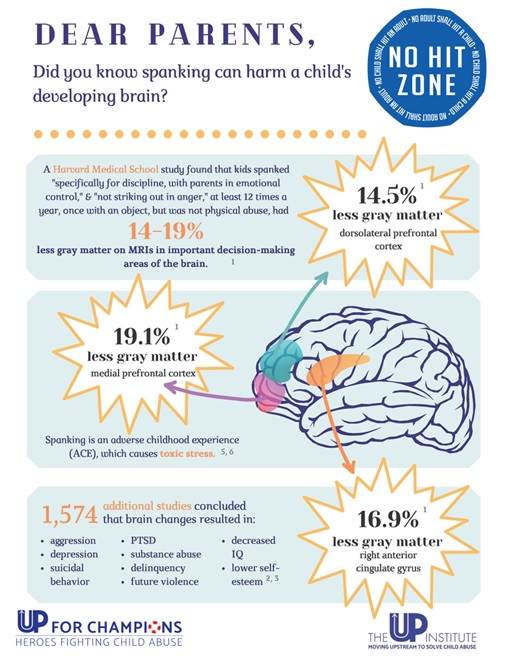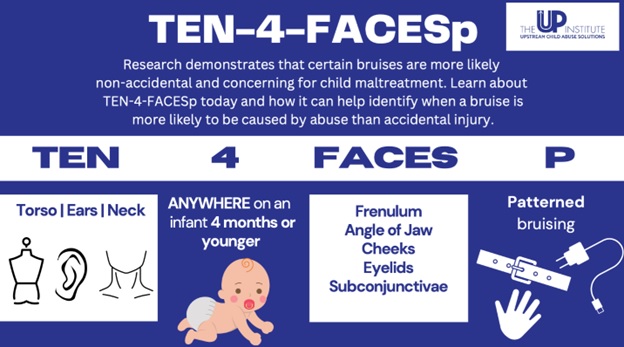
Resources
Research has long underscored the negative effects of spanking on children’s social-emotional development, self-regulation, and cognitive development, but new research, shows that spanking alters children’s brain response in ways similar to severe maltreatment and increases perception of threats.

October 4th is a day recognized for raising awareness of possible abusive injuries using the TEN-4 rule. TEN-4-FACESp is an acronym developed and validated by Dr. Mary Clyde Pierce and colleagues. Dr. Pierce found that “TEN-4-FACESp” is a useful acronym to help screen children under 4 years of age with bruising to identify when a bruise is more likely to be caused by abuse than accidental injury. TEN-4-FACESp stands for bruising to the Torso, Ears, Neck, Frenulum, Angle of the jaw, Cheeks, Eyelids or Subconjunctivae, “4” represents infants 4 months and younger with any bruise, anywhere, and “p” represents the presence of patterned bruising (TEN-4-FACESp).



